Takoto mai rā e Kiingi Tuheitia Pootatau Te Wherowhero VII
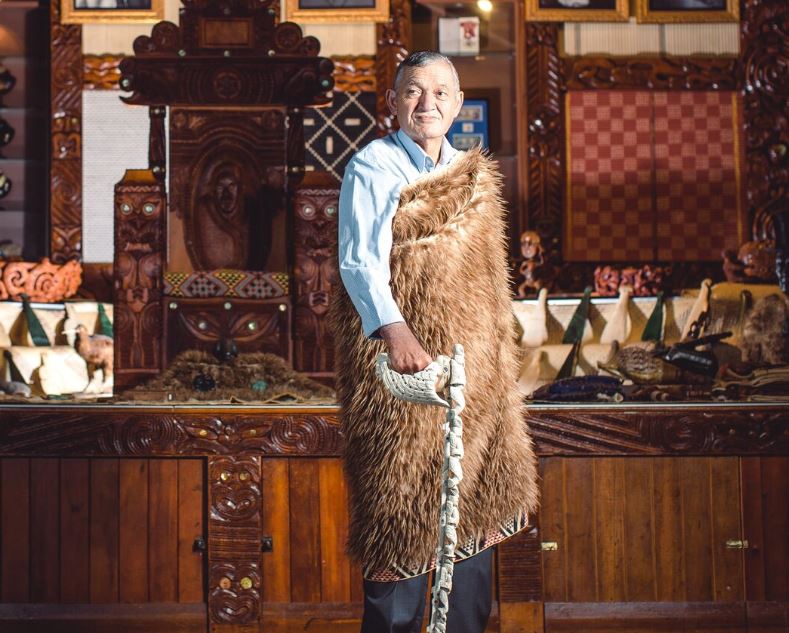
Kiingi Tuheitia Pootatau Te Wherowhero VII. Photo by Erica Sinclair.
E mea ana te kōrero, ka hinga atu he tētēkura, ka ara mai anō he tētēkura.
Ko koe tēna e te Kīngi o te Kotahitanga, e Tuheitia, kua whakangaro atu i te tirohanga kanohi.
Nā rēira, okioki mai rā koe ki to takotoranga tūturu, takoto, takoto, takoto mārika.
E haruru tonu ana te motu i tō ngarotanga atu, e waipuketia ana te whenua i ngā roimata e māturuturu tonu ana mōu.
Kua waihotia mai ko tā kourua tamāhine, a Ngā Wai hono i te po, hei Kuini.
Otirā, noho mai e te Kuini, ki tō torōna ā, kei kōnei tonu mātou ki te tautoko i te kaupapa kua mahue mai e tō matua.
Kia kaha rā koe, kia kaha tonu rā tātou.
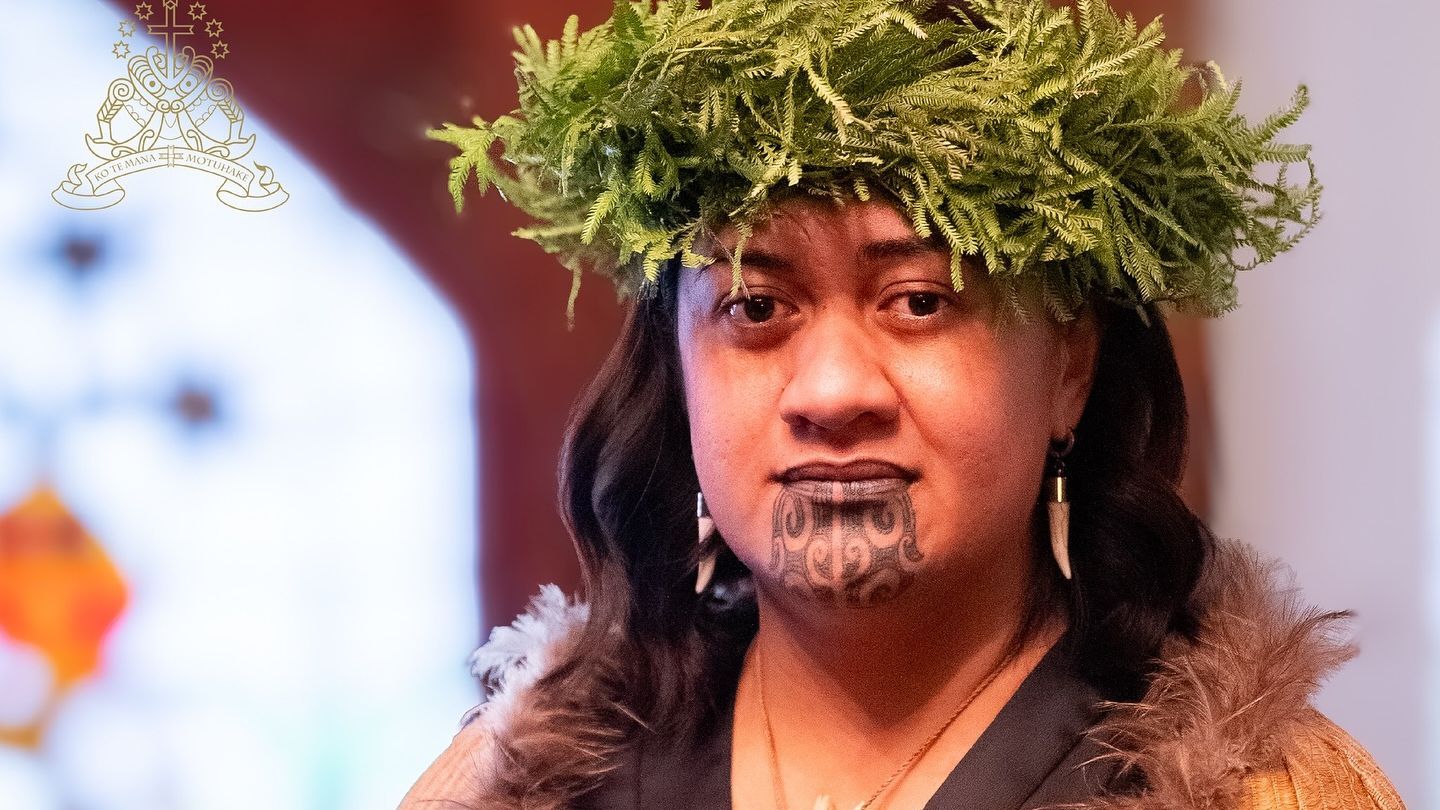
Kuini Nga Wai hono i te po Pootatau Te Wherowhero VIII. Source: Te Kiingitanga
Recognition that Māori did not cede sovereignty
Debate recently erupted in parliament after Prime Minister Christopher Luxon said Māori did cede sovereignty to the Crown. Shortly after his statement, Ngā Toki Whakarururanga co-convenor and Ngāti Hine leader Pita Tipene spoke to Radio New Zealand (RNZ) in the wake of an open letter written by Ngāti Hine and Ngāti Manu rejecting the prime minister’s statement.
The letter said the prime minister’s stance was “both misleading and offensive” and a Te Paparahi o Te Raki report by the Waitangi Tribunal found those who signed Te Tiriti o Waitangi retained “complete authority over their people and territories”.
“In February 1840 the rangatira who signed te Tiriti in the Bay of Islands and Hokianga did not cede their sovereignty. Rather, they agreed to a relationship in which they and the Governor were to be equal while having different roles and different spheres of influence,” the report said.
Pita told RNZ there were moves being made by politicians to undermine the tribunal. He said it wasn’t surprising that the prime minister and his cabinet go to Waitangi each year and use a lot of rhetorical language about honouring Te Tiriti o Waitangi.
“But really they aren’t honourable at all. It’s deception,” said Pita. “No government is going willingly to let go of any of any power and authority at all – not willingly, anyway… When our rangatira signed Te Tiriti o Waitangi and He Whakaputanga they were signing it with the Queen at that stage, so that is where the partnership is really at.”
Pita said the government was a “settler government” who came in after Te Tiriti was signed and replaced the king and his representative, the governor-general, with whom Te Tiriti was signed.
“[The governor-general] has the power – albeit through the prime minister – to dissolve Parliament. We’re going to apply ourselves to any measures to see that things are balanced in regard to those covenants our ancestors signed.”
Ngā Toki Whakarururanga will be reinforcing these arguments in the Waitangi Tribunal’s Constitutional Kaupapa Inquiry.
Māori data sovereignty recognised internationally

Suzanne Duncan Te Hiku Media COO, Keoni Mahelona CTO, and Peter-Lucas Jones CEO. Source: Te Hiku Media
Indigenous data sovereignty has been recognised internationally after chief executive of Te Hiku Media Peter-Lucas Jones has been named in the TIME100 AI list of 2024 for his work around preserving te reo Māori through AI technology.
He and his team at Te Hiku Media have developed groundbreaking natural language processing tools, including a speech-to-text system and text-to-speech capabilities, that are the first of their kind for te reo Māori. The tools have enabled automatic digital transcriptions with an eight per cent error rate and support various applications from transcribing archival audio to creating speech interfaces. This exemplifies the need to protect and promote Māori data sovereignty, including in trade agreements where it is under threat.
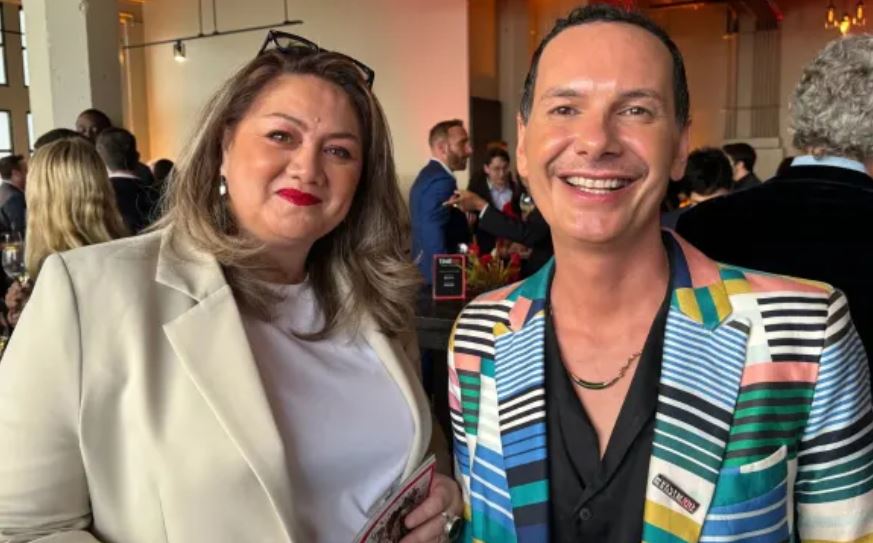
Te Hiku Media chair Kylie Brown and Peter-Lucas Jones at the event in San Francisco. Source: Peter-Lucas Jones.
Peter-Lucas, who is also a Ngā Toki Whakarururanga kaihautū, is in San Francisco this week to join the TIME magazine100 AI list. During his visit he hopes to influence native speakers in the AI space and inspire others to understand how solutions needed to come from indigenous communities.
“In doing so we are able to raise to the attention how indigenous communities like the one that I come from, don’t only want to be the users of technology, we want to be the developers of it too. And that way we’re not only just creating tools that serve one purpose,” Peter-Lucas told RNZ. Read more here.
How the Treaty ‘principles’ evolved and why they don’t stand up to scrutiny
Earlier this month an article Rewriting history: how the Treaty ‘principles’ evolved and why they don’t stand up to scrutiny by Ngā Toki Whakarururanga pūkenga Emeritus Professor Jane Kelsey was published in The Conversation, reflecting evidence she gave to the Tribunal’s urgency hearing in the constitutional Kaupapa inquiry.
In the article Jane explains how Act Party leader David Seymour’s Treaty Principles Bill has “exposed deep ignorance, among political leaders and many others, about te Tiriti and the more recent concept of Treaty principles, referring to Prime Minister Christopher Luxon’s proclamation on sovereignty and Labour Party leader Chris Hipkins “who accepted there was no Māori cession of sovereignty, but that somehow the Crown has sovereignty now”.
The article looked deeper into the origins of the Treaty principles from the mid-1970s, when Māori forced a reluctant Crown to create space within its institutions.
“As Māori activism and assertions of sovereignty intensified in the 1980s, the Crown came to see the ‘principles’ as a device to maintain the status quo. Reference to the ‘principles of the Treaty’ in the 1986 State-owned Enterprises Act was intended as a token nod to Māori. But the New Zealand Māori Council forced the courts to interpret it,” Jane wrote.
“Instead of recognising Te Tiriti and rangatiratanga (authority and autonomy), the Court of Appeal came up with its own Treaty principles that put Crown sovereignty at their core.”
Jane explained how the principles have evolved over time and how that journey has been a “fundamental constitutional challenge”.
“Over time, the spirit of the Treaty, embodied through principles, was redefined as a partnership: the Crown would govern and actively protect Māori rights as it saw them. Māori would be consulted where the Crown felt it needed more information. They would be loyal to the Queen of England and New Zealand and be reasonably co‑operative,” Jane wrote.
“The Waitangi Tribunal adopted and adapted these principles– to the point where it abandoned its earlier position that Māori never ceded sovereignty in te Tiriti,” but has reinstated its earlier findings that there was no cession of sovereignty in recent inquiries.
Read the full article here.
Wai 262 Tiaki Taonga Symposium
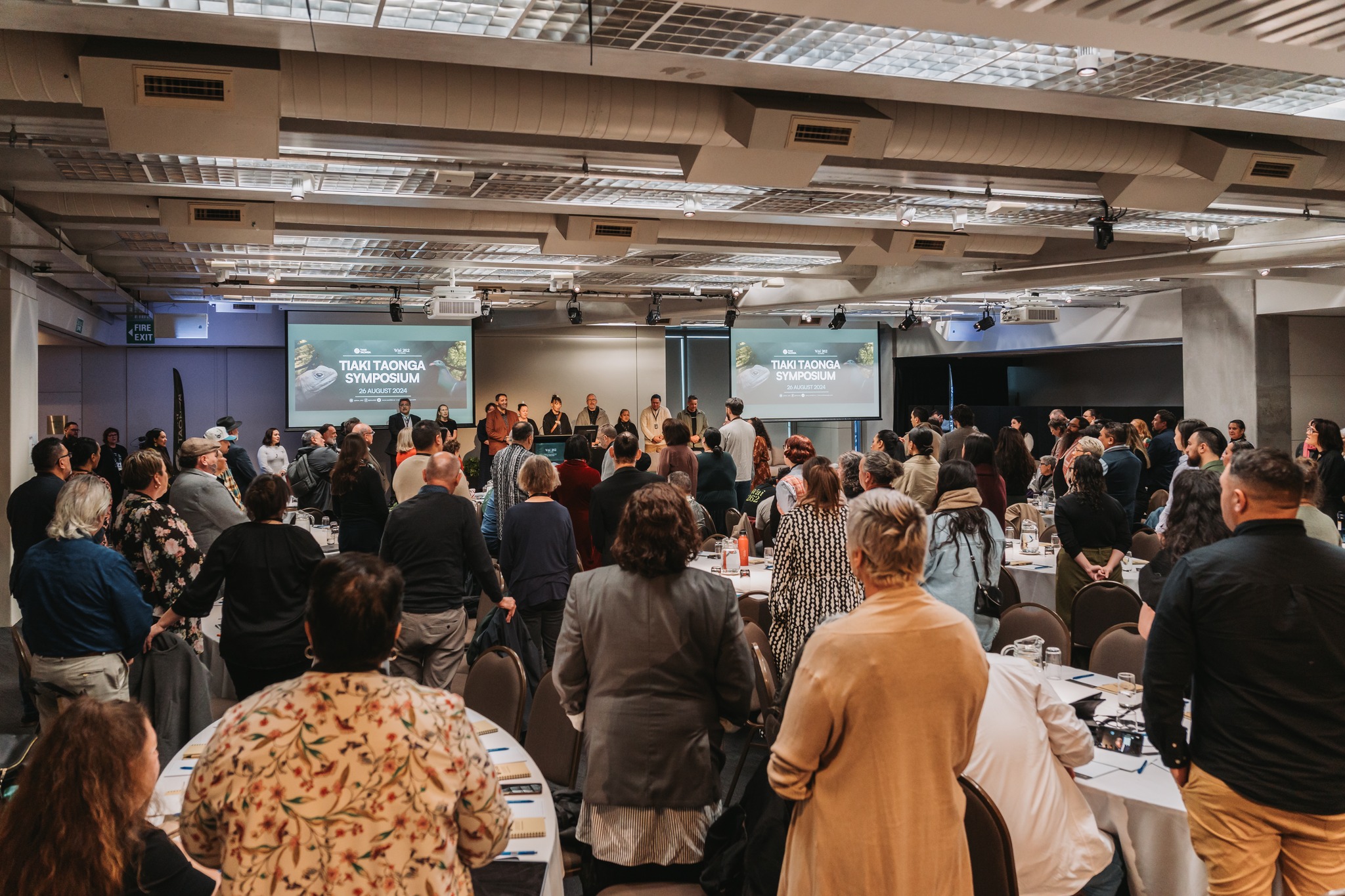
Attendees WAI 262 Tiaki Taonga Symposium: Photo credit ATA on behalf of Wai 262 Te Taumata Whakapūmau
The Tiaki Taonga Symposium was held at Te Papa on August 26 to discuss and present on the various aspects of the Wai 262 claim, including the development of a Tiaki Taonga legal and regulatory framework for protecting taonga.
It was well attended with more than 30 speakers including Ngā Toki Whakarururanga pūkenga Maui Solomon who was part of the international trade panel alongside high flying Māori business woman and leader, Rachel Taulelei and New Zealand Trade Commissioner in Taiwan, Tina Wilson. Their kōrero covered international agreements and their importance to promote and protect Māori interests.
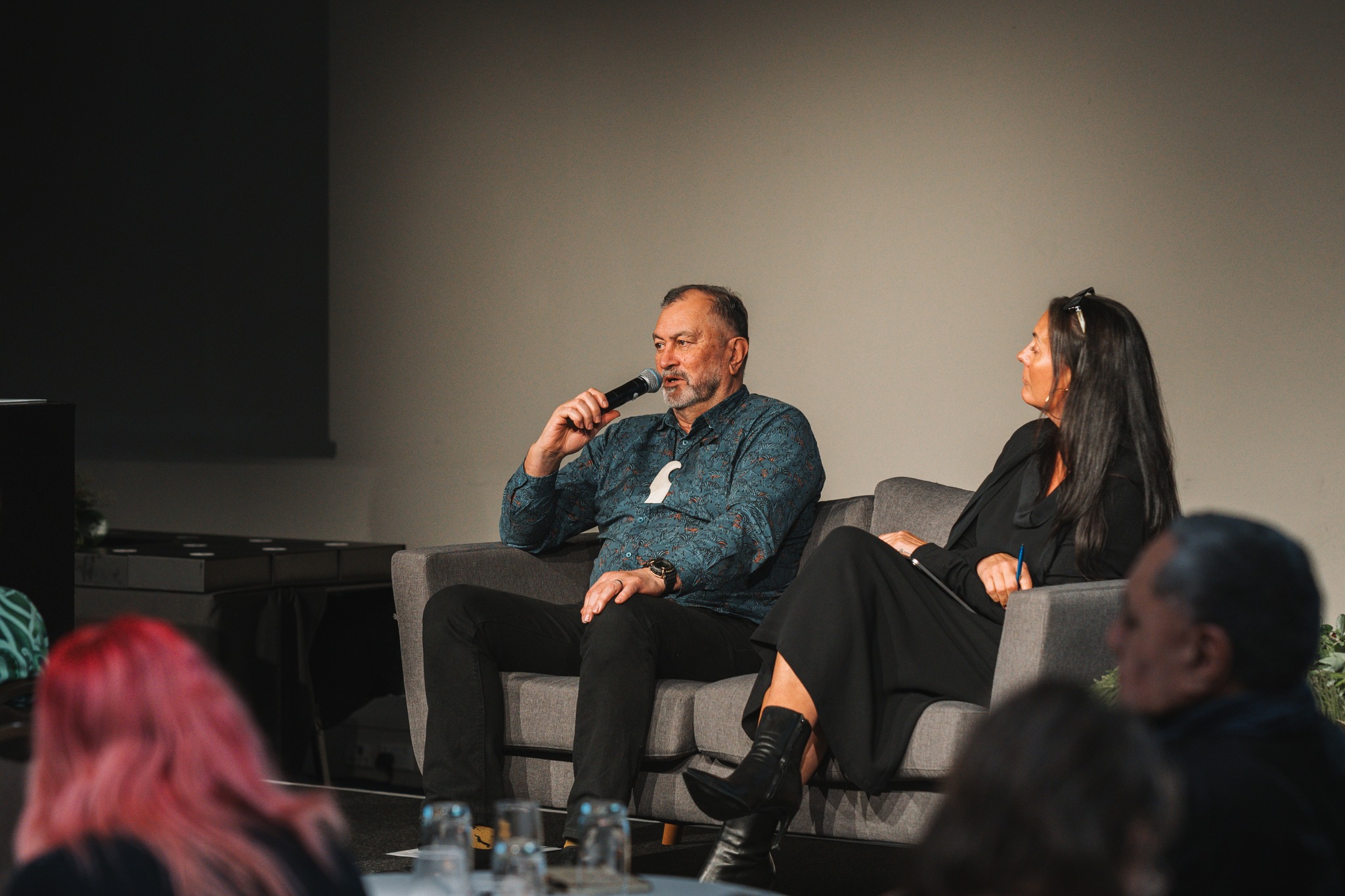
Maui Solomon during panel discussion. Photo credit ATA on behalf of Wai 262 Te Taumata Whakapūmau
Ngā Toki Whakarururanga pūkenga Aroha Te Pareake Mead also spoke about Raraunga Reo o ngā Ringatoi Māori (The Voices of 100 Māori Creatives), an independent kaupapa Māori project aimed at highlighting the direct experiences of Māori creatives in relation to the misuse and misappropriation of Māori creative works. Aroha also presented that research during the creatives wānanga Ngā Toki Whakarururanga hosted last month as part of Te Pae Tawhiti funded project.
There was a panel of rangatahi lawyers who are engaged in efforts to build on kaupapa such as the Mataatua Declaration in developing iwi/hapū-based agreement mechanisms for the protection of taonga. Ngā Toki Whakarururanga plans to engage with this rōpū as they are aligned with our identified priorities of Indigenous to Indigenous relationships.
IPETCA hui in Peru

IPECTA members during a hui earlier this year. Left to right: Traci Houpapa (co-chair), James P Dehart – US Consul General to Canada, Penny Flanagan, Lieutenant Governor of Minnesota, David Cohen – US Ambassador to Canada, Pita Tipene and Tane Waetford (co-chairs)
The next in-person meeting of the Partnership Council of the Indigenous Peoples Economic and Trade Cooperation Arrangement (IPETCA) will take place in Lima, Peru from November 11 to 13.
IPETCA came out of New Zealand’s hosting of APEC in 2021 and aims to ensure that Indigenous Peoples have a greater exposure and involvement in international trade and wherever possible to “indigenise” trade by ensuring our worldviews and values are brought into play.
Ngā Toki Whakarururanga played a major role in its drafting and negotiation, insisting on co-governance and pushing for a balanced commercial and protective mandate. The co-governance arrangements involve Indigenous and Government representatives from each participating country on a council co-chaired by Pita Tipene, Traci Houpapa co-chair and Tane Waetford. Aotearoa representatives are Ngā Toki Whakarururanga pūkenga Maui Solomon and FOMA Deputy Chair Liz Mellish.
One of the key issues for discussion at the meeting will be the implementation of the work plans that each country has agreed to undertake. Aotearoa will be looking at how trade policy has developed here and factors that have influenced Māori involvement in trade with some examples provided.
As the Ngā Toki Whakarururanga representative on the council, Maui will ensure that the relevant history of Māori struggle to get a voice within the trade space will be highlighted. Maui has been keen to ensure that our significant points of difference as Indigenous Peoples can and do influence the way we participate in international trade individually and collectively, and more effective cross-referencing to UNDRIP.

